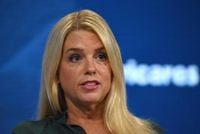On August 25, 2025, President Donald Trump dramatically escalated federal intervention in Washington, D.C., announcing at a morning press conference that the federal government would take control of the city’s police department and launch a sweeping crackdown on crime. Declaring the day “LIBERATION DAY IN D.C.,” Trump promised to “clean it up real quick, very quickly,” invoking images of “crime, bloodshed, bedlam and squalor”—despite the city actually recording its lowest crime rates in three decades, according to local authorities and reporting from Forbes.
The announcement capped off weeks of intensifying federal involvement in the capital. Since August 7, more than 2,100 federal law enforcement officers—including 120 FBI agents reassigned from cities like Philadelphia—have patrolled D.C. streets, as reported by Nexstar Media. The Secret Service was also ordered to conduct special patrols. National Guard troops, numbering roughly 2,000, were deployed to run checkpoints and assist in clearing homeless encampments, though they lack arrest powers.
The scale of the operation is unprecedented in recent D.C. history. Over 1,000 arrests have been made since the federal presence ramped up, with 86 of those coming on the night before Trump’s August 25 announcement. Federal authorities seized 111 firearms and arrested six known gang members, including affiliates of MS-13 and Tren de Aragua. Multi-agency teams have cleared 49 homeless encampments, and among the Sunday night arrests, 37 were immigrants lacking permanent legal status. Charges ranged from carrying a pistol without a license to assaulting federal officers and National Guard members.
Trump previewed his announcement on Truth Social, posting images of tent encampments and trash, and writing that homeless people “have to move out, IMMEDIATELY,” and “criminals” would be “put in jail.” He drew comparisons to his earlier border policies, insisting, “it’s all going to happen very fast, just like the Border.” He also promised “beautification” efforts and a “general physical renovation” of the capital, even asking Congress for $2 billion to fund improvements.
But the move has ignited fierce debate over the limits of federal power and the future of local governance in the District. Under the Home Rule Act, the president can temporarily take control of D.C.’s police department if “special conditions of an emergency nature exist.” Trump has invoked this authority, but his actions have drawn swift legal and political challenges. On August 15, D.C. Attorney General Brian Schwalb filed a lawsuit against the Trump administration, arguing the federal takeover of the Metropolitan Police Department (MPD) was unlawful. The city’s mayor, Muriel Bowser, joined the suit, and after an emergency court hearing, the Trump administration rescinded an order that would have replaced Police Chief Pamela Smith. Smith retained her position, with the MPD reaffirming its “commitment to delivering high-quality police service” in partnership with federal agencies, as reported by AP News.
Despite the legal wrangling, Trump pressed forward with two new executive orders on August 25. According to 7News, these directives order the National Park Service to hire more U.S. Park Police, instruct the U.S. Attorney’s Office to bring on additional prosecutors, and mandate the Defense Department to create a specialized unit within the D.C. National Guard. Trump also targeted the city’s longstanding cashless bail system, a policy in place since the mid-1990s that allows most defendants to await trial without posting bond. “We are starting by ending it in D.C.—and we have the right to do that through federalization,” Trump said. The White House claimed these measures have already produced “the lowest crime numbers in years.”
Mayor Bowser, however, pushed back, noting that violent crime in D.C. is actually down 26% compared to last year, and that the cashless bail system helps ensure wealth doesn’t determine pretrial detention. “Cashless bail is not a new phenomenon in the District,” she stated, suggesting that empowering judges to hold certain accused individuals pretrial would be a more effective reform.
Meanwhile, a new controversy erupted as a whistleblower alleged that D.C. police have been systematically downgrading or reclassifying violent crimes across all seven police districts, potentially making the city appear safer than it really is. The Washington Post reported that the House Oversight Committee is now investigating, with one police official placed on leave and Chairman James Comer calling the claims “credible and alarming.” Bowser responded that she does not believe the practice is widespread, but the revelations have added fuel to the already heated debate over federal control and local autonomy.
On the ground, the impact of the federal crackdown is palpable. Howard University students and other residents describe a city transformed by police checkpoints, increased National Guard patrols, and a heavier security presence. “I was walking with two friends to CVS nearby Florida Avenue, when we saw what appeared to be National Guard police cops,” said O’Tavia Berridge, a first-year criminology major, to The Hilltop. “It got tense and we started walking straighter, more proper, made sure quicker as possible. I just don’t really feel safe.”
Community frustration is mounting, especially in neighborhoods hit hardest by crime. In Southeast D.C.’s Fairlawn community, families organized a crime walk on August 25, marching down Minnesota Avenue just days after a broad daylight shooting. Residents told 7News they’re fed up with open drug dealing and violence near schools, and some say they haven’t seen the promised increase in police presence, particularly east of the Anacostia River.
Inside the federal courthouse, tensions have boiled over. On August 25, U.S. Magistrate Judge Zia Faruqui dismissed a weapons case against a man held in D.C. jail for a week, calling the search “the most illegal search I’ve ever seen in my life.” Faruqui noted the man appeared targeted because he was Black and carried a heavy backpack. “We don’t just charge people criminally and then say, ‘Oops, my bad,’” the judge said, expressing outrage at the U.S. Attorney’s Office for pursuing the case. Public defender Elizabeth Mullin called the arrest “patently unlawful.”
Newly confirmed U.S. Attorney Jeanine Pirro, however, defended her office’s approach, stating, “This judge has a long history of bending over backwards to release dangerous felons in possession of firearms and on frequent occasions he has downplayed the seriousness of felons who possess illegal firearms and the danger they pose to our community.” Pirro has directed prosecutors to seek maximum charges and pretrial detention whenever possible, in line with Trump’s new executive order.
Trump himself has touted the operation’s success, writing on Truth Social, “The crowds are coming back and the spirit is high while the National Guard and police are doing their job. They are out in force, and not playing games.” He visited federal law enforcement stationed in Anacostia on August 21, joined earlier in the week by Vice President Vance and Secretary of Defense Pete Hegseth at Union Station.
Nevertheless, the future of the federal operation remains uncertain. Trump has hinted at extending similar efforts to cities like Baltimore and Chicago, but told reporters, “I was telling some of the people that in a certain way you really want to be asked to go. I hate to barge in on a city and then be treated horribly by corrupt politicians and bad politicians.”
As the legal battles continue and city residents adjust to a new normal, both city leaders and the White House insist their priority is the same: making D.C. safer. Yet the city’s streets—and its courthouses—remain the stage for an unfolding struggle over who gets to decide what public safety looks like in the nation’s capital.


